Question And Answer
Publications
Articles, publications, books, tools and multimedia features from the U.S. Institute of Peace provide the latest news, analysis, research findings, practitioner guides and reports, all related to the conflict zones and issues that are at the center of the Institute’s work to prevent and reduce violent conflict.
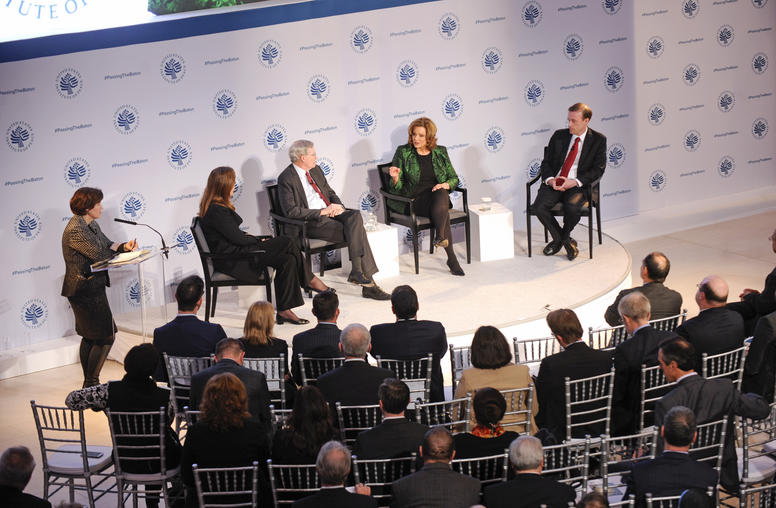
Trump & Obama Aides, Experts Weigh America’s Global Role
Seven weeks past an election that stirred talk of U.S. isolationism, national security aides from the incoming, outgoing and previous administrations held private discussions January 9 that found a broad point of consensus: The United States must lead more, not less, in the world. The meetings, among more than 80 past, present and future officials and independent foreign policy analysts, opened a bi-partisan conference on national security issues convened by the U.S. Institute of Peace (USIP)...
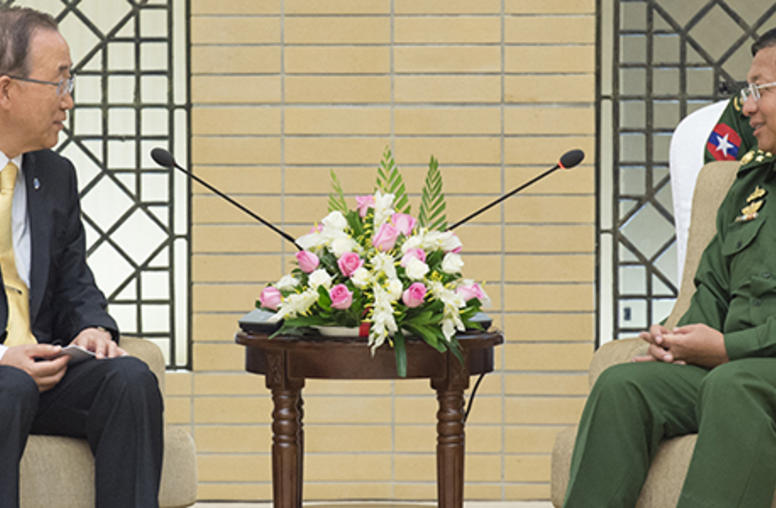
Myanmar Peace Process: Slow Progress, Delicate Steps
The peace process in Myanmar, which seeks to end decades of conflicts between the country’s army and an array of rebel groups, is progressing fitfully but could still face a reversal, experts on the Southeast Asian nation said in a discussion at the U.S. Institute of Peace. To drive it forward will require that the country’s new democratic leadership to skillfully manage relations with the still-powerful military while pushing negotiations and building confidence with the nation’s diverse arm...
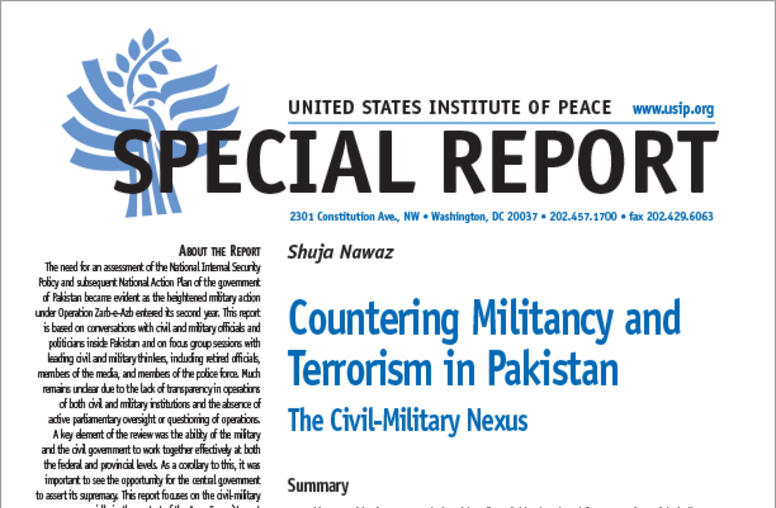
Countering Militancy and Terrorism in Pakistan: The Civil-Military Nexus
Based on interviews with civil and military officials and politicians, this report details the poor governance and imbalance of power in Pakistan and offers key recommendations for the military, civilian institutions, parliament, and civil society to achieve the goals and objectives outlined in Pakistan’s National Action Plan (NAP). The need for an assessment of the National Internal Security Policy and subsequent NAP became evident as the heightened military action under Operation Zarb-e-Azb...
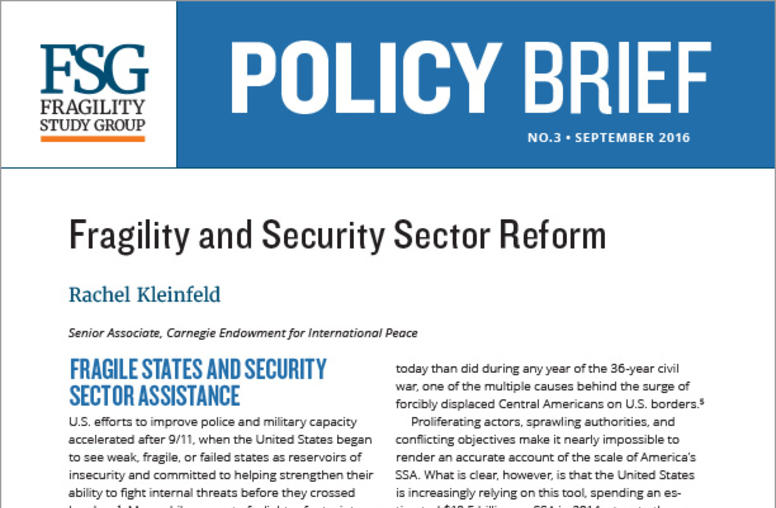
Fragility and Security Sector Reform
The Fragility Study Group is an independent, non-partisan, effort of the Carnegie Endowment for International Peace, the Center for a New American Security and the United States Institute of Peace. The chair report of the study group, U.S. Leadership and the Challenge of State Fragility, was released on September 12. This brief is part of a series authored by scholars from the three institutions that build on the chair report to discuss the implications of fragility on existing U.S. tools, st...
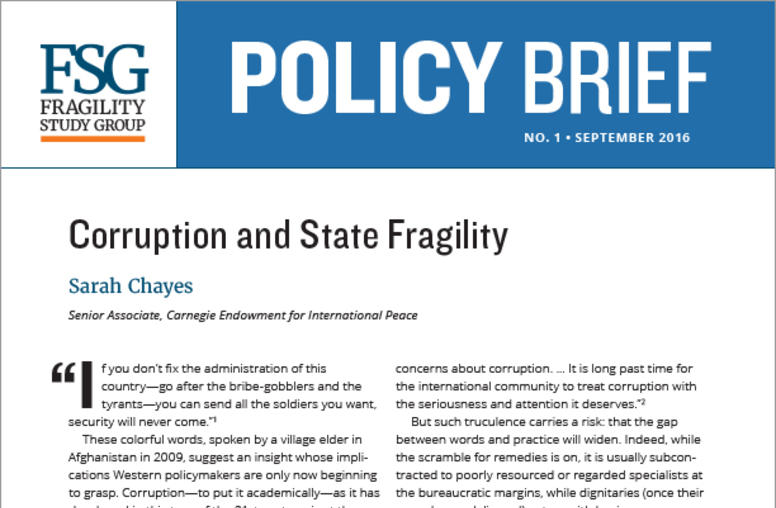
Corruption and State Fragility
The Fragility Study Group is an independent, non-partisan, effort of the Carnegie Endowment for International Peace, the Center for a New American Security and the United States Institute of Peace. The chair report of the study group, U.S. Leadership and the Challenge of State Fragility, was released on September 12. This brief is part of a series authored by scholars from the three institutions that build on the chair report to discuss the implications of fragility on existing U.S. tools, st...
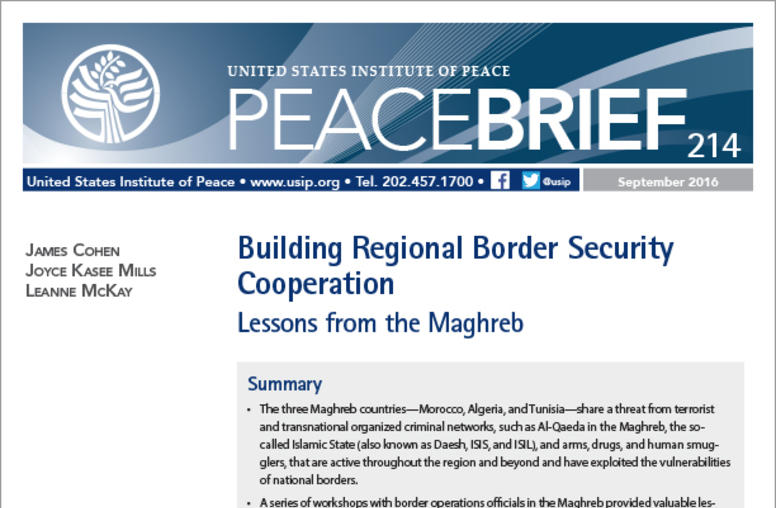
Building Regional Border Security Cooperation: Lessons from the Maghreb
The Maghreb countries of Morocco, Algeria, and Tunisia face threats to their borders from transnational illicit networks, such as terrorist groups and criminal organizations. To address these threats, USIP convened operational border officials from the three countries through a series of workshops in spring 2016. This brief highlights the key lessons that emerged from this work: addressing border security requires understanding the underlying drivers of insecurity; border security requires st...
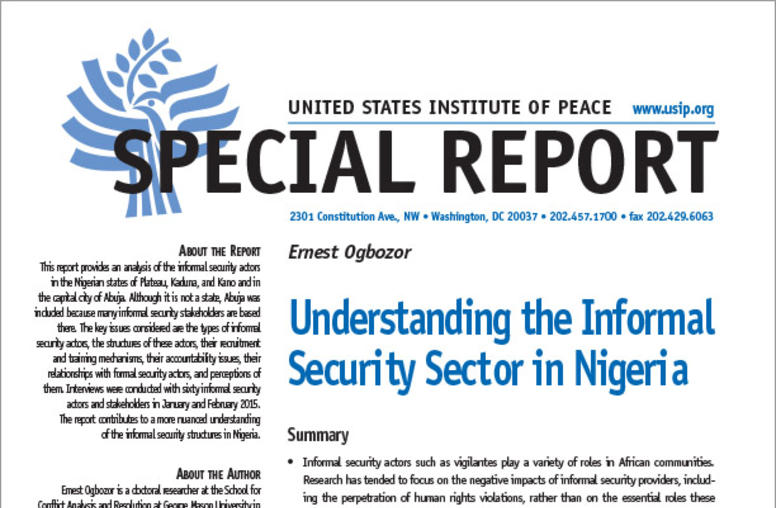
Understanding the Informal Security Sector in Nigeria
Informal security actors such as vigilantes play a variety of roles in African communities. Research has tended to focus on the negative impact of informal security providers, but these groups have an essential role in a community’s safety and security. This report provides an analysis of the informal security actors in the Nigerian states of Plateau, Kaduna, and Kano and in the capital city of Abuja.
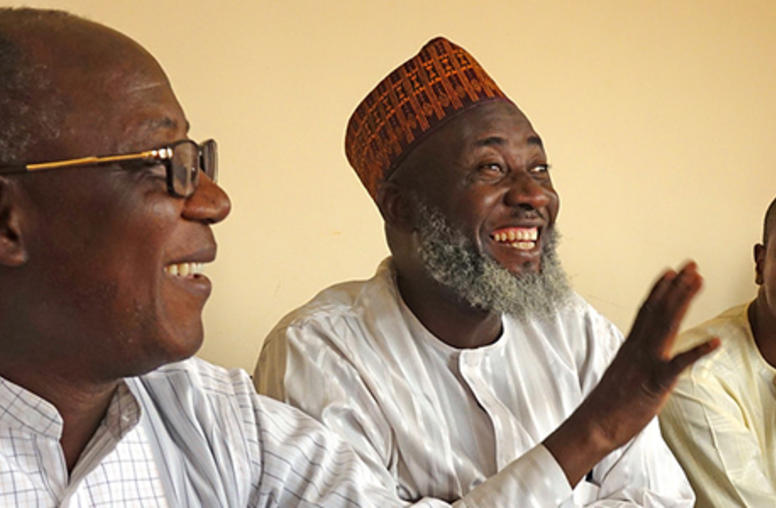
Nigeria’s Powerful Governors Eye Roots of Boko Haram
Governors from northern Nigeria, where the U.S. military is helping quell the Boko Haram militant group, will convene at the U.S. Institute of Peace for the second time this October to agree on civilian actions they can take to address the root causes of violent extremism and help ensure that efforts to stabilize this vital region will stick. Former U.S. Assistant Secretary of State Johnnie Carson, a USIP senior advisor helping organize the gathering, said Nigerian governors are some of the m...
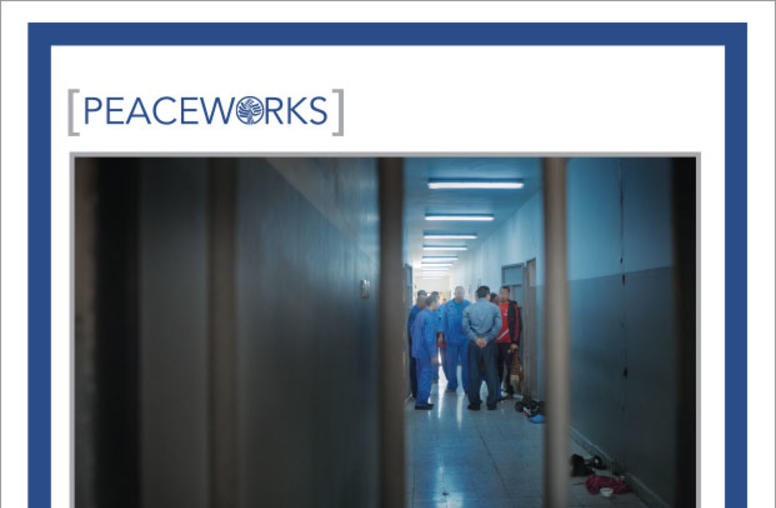
Prisons and Detention in Libya (Arabic)
التقرير الماثل هو عصارة استبيانين أُجْرِيا في ليبيا خلال عامي 2014 و2016. والغاية منه سَبْرُ أغوار القطاع الديني في ليبيا ورصد تأثيره في الحكم والمجتمع. وقد استندت عملية استخلاص نتائج هذا التقرير إلى
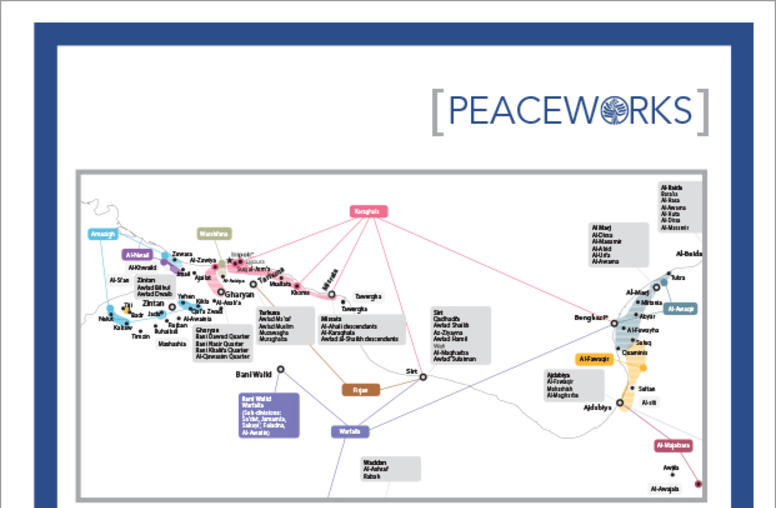
Tribe, Security, Justice and Peace in Libya Today
After the 2011 revolution in Libya that toppled Gadhafi and destroyed many state institutions, tribes and armed groups stepped in to fill the vacuum. The trend increased after the collapse of central state security in 2014. This report examines the renewed role of tribes as guarantors of social stability and providers of security and justice services in the country during the period and today.